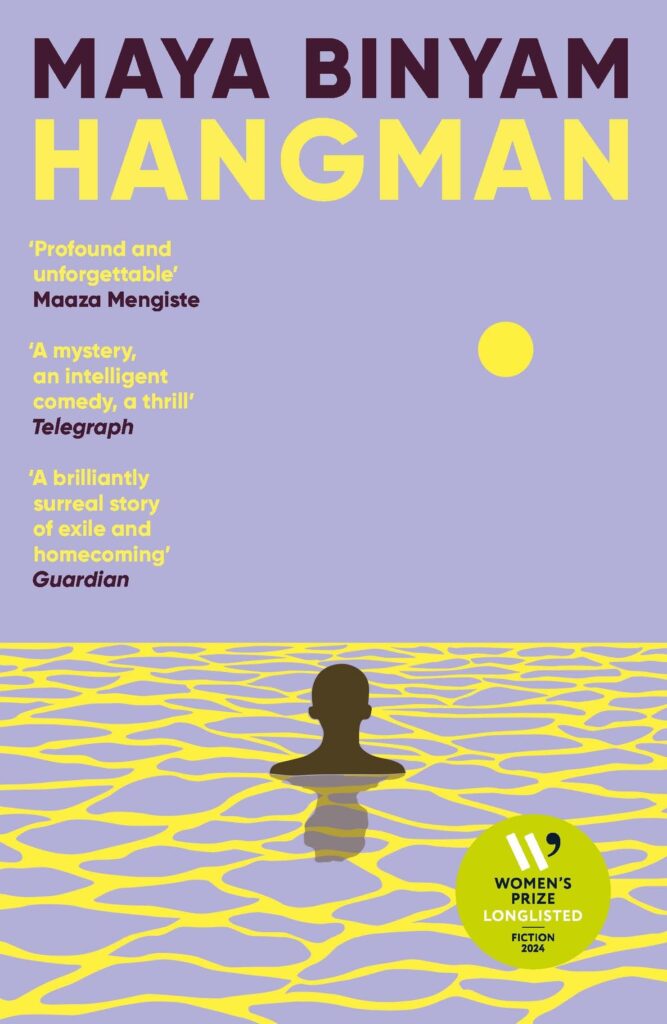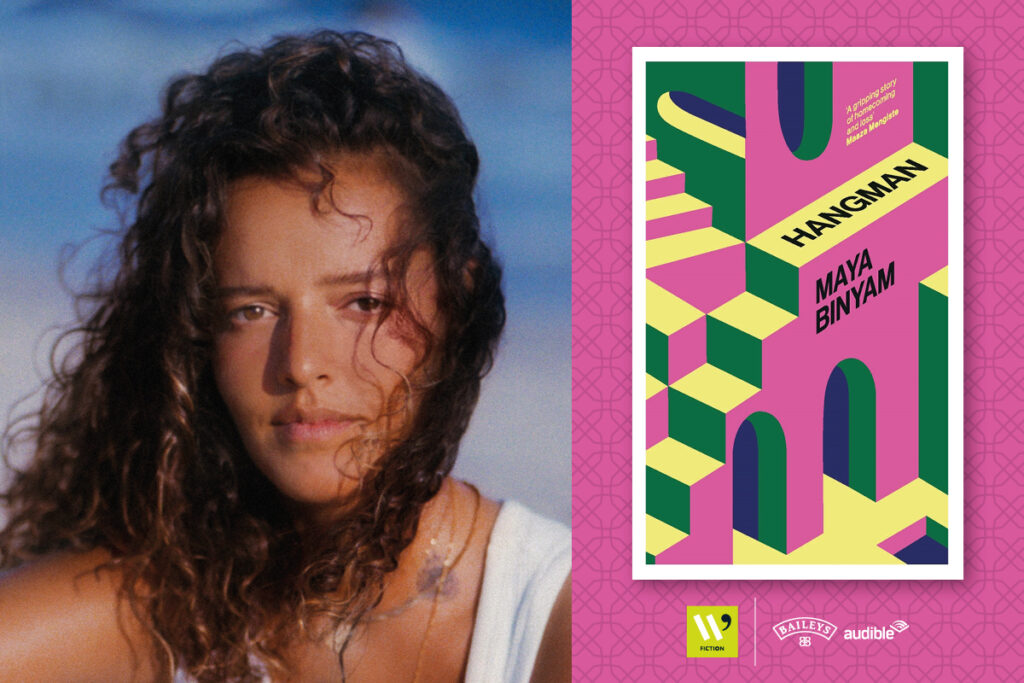Hangman by Maya Binyam tells the story of one man’s search for refuge – in this world and the one that lies beyond it.
Described as a tragic farce, this is a surreal and enigmatic tale, full of empathy and dark comedy. Hangman is also one of the debut’s on the 2024 Women’s Prize for Fiction longlist.
‘Binyam reinvents the novel of return and does so with a mordant wit and a sense of playfulness, that keeps you hooked right until the very end.’
Monica Ali

Describe your book in one sentence as if you were telling a friend.
A middle-aged exile returns to his home country after twenty-six years away; he believes he is there to visit his brother, who is sick, dying, or dead already.
What inspired you to write your novel?
I was interested in writing about the afterlives of revolutionaries. I grew up in diaspora, in a community of people navigating a prolonged political hangover. The revolution had supposedly come to a formal close, and they had been given new names: as refugees, exiles, racial minorities. Many of them told me stories that were important to me, but that I was sure I would forget. And so I wrote them down.
Which part of the book was the most fun to write? Which was the most challenging?
I loved writing scenes of misrecognition, where the narrator, seeing a stranger, confuses them for family. I had a much harder time writing scenes of pure recognition, when the narrator correctly identifies someone he knows, or knew long ago. Those scenes were heavy, glowing. The feeling wasn’t one that was easy to conjure after finishing the ordinary activities that otherwise make up my life, like eating lunch or talking on the phone.
If you could take one book to a desert island, what would it be and why?
For perhaps obvious reasons, I’d likely bring an encyclopedia of plants and flowers.
Where is your favourite place to write?
I like writing far away from home, in places that are unfamiliar to me. In the woods, or near a body of water, somewhere where I don’t get cell service. Obviously those places are hard to find. Residencies have been extraordinarily helpful.
If you hadn’t been a writer, what would you be doing now? Where would you be?
My mother once trained horses, and my original dream was to become a jockey. But I’m too big for that. I’d likely be working outside, far away from a desk, and with animals.








